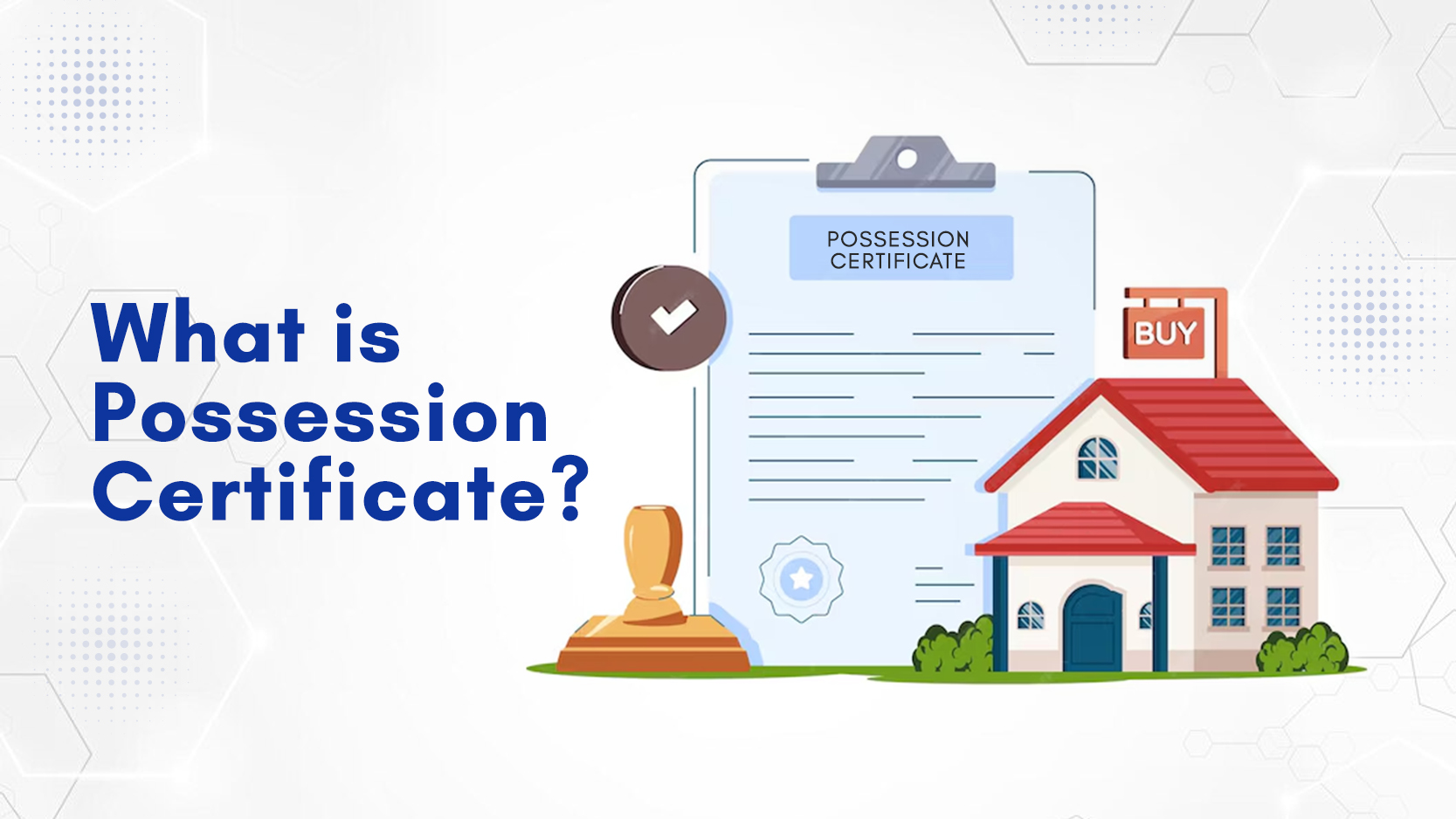Special Offers




Special Offers




12-Jun-2024 | Home Loan

When you purchase a property, ensuring you have all the necessary documentation is essential. Among these documents, the Possession Certificate holds significant importance. It is a legal document that signifies the transfer of property from the seller to the buyer, confirming that the buyer has taken physical possession of the property. This article delves deep into what a Possession Certificate is, its importance, how to obtain one, and its particulars.
A Possession Certificate is a legal document issued by the builder or the seller to the buyer, indicating that the possession of the property has been transferred. This certificate is crucial as it officially marks the point at which the buyer becomes the owner of the property, taking over the rights and responsibilities associated with it. It is an acknowledgment that the seller has handed over the property to the buyer after receiving the complete payment.
In legal terms, the Possession Certificate serves as evidence that the property has been handed over to the buyer on a specific date. This document is essential not only for legal ownership but also for obtaining other utilities and services, such as water and electricity connections.
A Possession Certificate typically contains the following particulars:
Date of Possession: The exact date when the property was handed over to the buyer.
Property Details: Detailed description of the property, including the address, size, and any unique identifiers.
Buyer and Seller Information: Names, addresses, and contact details of both parties involved in the transaction.
Payment Confirmation: Statement confirming that the full payment for the property has been received by the seller.
Builder’s Signature: The certificate must be signed by the builder or the seller, along with their official seal, if applicable.
Acknowledgment by Buyer: A section where the buyer acknowledges the receipt of the property in good condition.
To obtain a Possession Certificate, the buyer must submit several documents. These documents are necessary to validate the transfer and to ensure that the property has no legal encumbrances. The required documents typically include:
Sale Deed Copy: This is the primary document that acts as proof of sale and transfer of ownership.
Payment Receipts: Receipts of all payments made to the seller or builder, including the final payment.
ID Proof: Government-issued identification of the buyer (Aadhaar card, PAN card, passport, etc.).
Address Proof: Proof of the buyer’s current address.
Completion Certificate: Issued by the local municipal authority, confirming that the construction is complete and adheres to the approved plans.
No Objection Certificate (NOC): From the builder, stating there are no dues pending.
Bank Documents: If a home loan was taken, documents from the bank confirming the loan details and its clearance status.
Visit the Builder's Office: Approach the builder or seller from whom you purchased the property.
Submit Documents: Provide the necessary documents mentioned above to the concerned authority or office.
Application Form: Fill out an application form requesting the Possession Certificate.
Verification: The builder or the concerned authority will verify the submitted documents and the property details.
Issuance: Upon successful verification, the Possession Certificate will be issued to the buyer.
In India, the process to obtain a Possession Certificate can often be initiated online, depending on the state's infrastructure. Here’s a step-by-step guide to obtaining a Possession Certificate online:
Visit the Official Website: Go to the official website of the respective state or municipal authority that provides the service.
Login or Register: If you are a new user, you may need to register on the portal. Existing users can log in with their credentials.
Application Form: Navigate to the section for Possession Certificates and fill out the online application form.
Upload Documents: Upload scanned copies of all required documents, including the sale deed, payment receipts, ID proof, etc.
Pay Fees: Pay any applicable fees online through the portal.
Submit Application: Once all details are filled in and documents uploaded, submit the application.
Track Application: You can track the status of your application through the portal.
Receive Certificate: After verification, the Possession Certificate will be issued and made available for download.
In some cases, a conditional Possession Certificate may be issued. This occurs when certain conditions of the sale or construction are yet to be met. For instance, the builder might hand over possession of the property while some amenities or common areas are still under construction. A Conditional Possession Certificate will outline the pending work and conditions that need to be fulfilled for the issuance of a full Possession Certificate. It’s essential for the buyer to understand these conditions and ensure they are documented clearly to avoid disputes later.
Legal Protection: It protects the buyer by documenting the incomplete status of the property at the time of possession.
Obligations: Clearly outlines the obligations of the builder that are yet to be fulfilled.
Future Claims: It allows the buyer to make claims or demands from the builder to complete the pending work.
A Possession Certificate is a critical document in the home buying process, symbolizing the transfer of property ownership from the seller to the buyer. Whether you obtain it through an offline or online process, having this certificate ensures that your ownership is legally recognized and helps in securing essential services and utilities for your new home.
Understanding the particulars and requirements of a Possession Certificate can save you from future legal troubles and disputes. Additionally, being aware of the concept of a Conditional Possession Certificate can provide added protection if the property is not entirely ready at the time of possession.
Always ensure you have this document safely secured along with your other property documents. As with any significant transaction, consulting with legal professionals or real estate experts can provide further clarity and assistance in obtaining your Possession Certificate seamlessly.